- Home
- J. Robert Kennedy
No Good Deed Page 2
No Good Deed Read online
Page 2
“Could we hide somewhere?”
“And just where would you propose we hide? Our Jewish friends are just as much a target as we are, and none of our Austrian friends have offered to help, nor can we risk asking them.”
“We could rent a room somewhere. An apartment under different names.”
“And when the money runs out, or they ask us for our identification papers?”
“Well, we can’t just do nothing. We have to at least try.”
“I know, my dear, but I just don’t know what we can do. Once the Nazis are here…”
His mother looked away. “I’ve heard stories about how they treat Jews. They’re horrible. They’re destroying Jewish businesses, beating Jews in the street, blaming us for everything from the Depression to the common cold. If you can’t work, then we’ll starve, we’ll lose our home, and we’ll need to live off the charity of others in a country where there is no charity for people like us. And the prospects of being beaten, raped, or murdered by some Nazi in a black SS uniform is not a future I want to be a part of.”
“What are you saying?” asked his father, his voice barely a whisper.
His mother stared into his father’s eyes, tears flowing freely. “I’m saying there’s another way.”
“You don’t mean…”
“Can you think of a better way, a way that protects us all from the horrors to come?”
His father’s shoulders slumped. “No.”
“Will you take care of it?”
“I’ll talk to Peter.” He held up a finger. “But we use it only as a last resort. Only if it looks like the worst is going to happen. Agreed?”
His mother responded with a trembling nod, her eyes closed, her shoulders shaking. They held each other tight, and Daniel retreated back into the dining room where he had been playing, wondering what his parents had just agreed to do.
And what a Nazi was.
3 |
Acton/Palmer Residence St. Paul, Maryland Present Day, Four Weeks Earlier
Archaeology Professor Laura Palmer sat curled up in her favorite chair as her husband, James Acton, prepared the ingredients for taco night with Tommy Granger. Tommy’s girlfriend, Mai Trinh, sat in the corner of the couch, stretching, wincing each time.
“What’s with you today?” asked Laura.
Mai rolled her neck. “I started Vovinam classes last night.”
James’ knife paused. “Vovinam? What’s that?”
“It’s a Vietnamese martial art. I didn’t know there was a school in the area, but I found one a couple of weeks ago, so I signed up and started last night. I used to do it when I was a kid, but I haven’t even thought of it in years. I figured it might be a good idea to learn some self-defense techniques, considering what you two are always getting us into.” She flashed a smile.
Laura regarded the young woman who had helped save their lives in Vietnam, paying a very high price, now exiled to the United States. But she had embraced her new life, obtained her citizenship, and now lived with Tommy, a young man who absolutely adored her.
James returned to slicing a green pepper, glancing over at Tommy. “Are you taking the lessons as well?”
Tommy shook his head. “No. If I did, I wouldn’t have an excuse for when she kicked my ass.”
James laughed. “Your choice. But I will say that some of the best times Laura and I have had together have been during training, and when you’re all done and sore all over, nothing beats rubbing each other down.” His eyebrows bobbed suggestively.
Laura gave him a look. “Behave, James.”
“Who? Me?”
Tommy smiled then looked at Mai. “Maybe I should join you.”
She perked up at this development. “That would be wonderful! I think you’d really enjoy it. It’s tough, especially at first, but once you get in shape, it’s a lot of fun.”
Tommy groaned. “In shape? This is starting to sound more and more like exercise.”
James stared at him. “What did you think it was, a video game?”
Tommy blushed then offered a weak rebuttal. “Who? Me?”
James shook his head. “Dude, you gotta get your head out from behind a screen every once in a while.”
Laura’s phone vibrated with a message. She brought up the email and gasped at who it was from.
James, concerned, put down his knife, rounding the kitchen island. “What is it?”
“It’s an email from Mr. Meitner.”
“Who?”
“You know, the founder of Meitner Telecom, the company that bought out my brother’s.”
“Oh. Does he want his money back?”
Tommy snickered and fist bumps were exchanged between him and her husband. She finished reading the message then filled in her wisecracking partner. “He’s inviting us to a charity event in Vienna. Apparently, he’s giving away the bulk of his fortune before he dies.”
“Just how much is that fortune?”
Laura Googled the man’s name. “Over twenty billion, according to this.”
Tommy whistled. “Do you think he’d donate to the Granger-Trinh House Down Payment Fund?”
Laura put her phone down. “You two are saving for a house?”
Mai nodded. “We don’t want to pay rent forever, so we’ve started setting a little bit aside each month. It’s not much, obviously, but it’s a start. Maybe in five or ten years, we’ll have enough.”
Laura glanced at James, who gave her a surreptitious wink. She leaned toward Mai. “If you two want to buy a house, then we’ll give you the down payment.”
Tommy’s jaw dropped. “Oh my God, thank you!”
Mai’s eyes shot wide. “Hell no!”
Laura almost laughed at the reactions, the vernacular she would normally expect from each of them swapped. “Why not?”
“You two have done too much for us already. That’s just too much.”
Laura pointed at the phone. “You do know how much that man paid for my brother’s company, don’t you? And that I inherited everything when he died?”
Mai shook her head. “No, I don’t know, though I imagine it was a lot.”
“It was. It’s enough that few can understand what it’s like to have the fortune we do, and nothing gives us greater pleasure than to help others, especially our friends. Now, if we thought for a moment you two were irresponsible and couldn’t afford your own home merely because you’re squandering your money, then we wouldn’t make the offer. But we know you. You are two young, hard-working adults who have brought so much joy to our lives, that we would love to do this for you.”
Mai looked over at Tommy, his mouth still agape. He shrugged at her as James reached over and pushed Tommy’s jaw up, the teeth clicking in the silence. Mai’s shoulders slumped, her voice dropping to barely a whisper. “I don’t know what to say.”
“You say, ‘thank you!’” cried Tommy. “You say, ‘thank you so much!’”
Tears rolled down Mai’s cheeks. “You have no idea what this means to us, what it means to me. I never thought I’d own my own home. I always figured I’d just be living with my father until he died, and then whatever family I had would continue in the same space we had for generations.” She sighed. “I just wish my family could be here with us. I know my mother is looking down upon us, thanking God that I found you. Not only have you two become two of the best friends I’ve ever had, you’ve taken care of me like…” She hesitated, her chin dropping to her chest and her voice cracking. “Like you were my parents.”
Laura burst into tears and held out her arms. Mai bolted from her seat, rushing into them. They hugged each other hard, both sobbing. “You know we think of you as our daughter, and we’d do anything for you. We love you.” She glanced over at Tommy, whose eyes glistened. “We love both of you.”
James punched Tommy on the shoulder. “I’d say like a son, but it would come off as incestuous, since you’d be boinking your sister.”
Tommy’s eyes shot wide. “Huh, I never thou
ght of that.”
James squeezed the back of Tommy’s neck, giving him a shake.
Laura let go of Mai and grabbed a tissue from the end table, handing it to the young woman, then pulling one for herself. Noses were blown, eyes were wiped, and the moment of bonding continued in silence until the timer rang on the oven, signaling the chicken breasts were ready. Awkward giggles and smiles were exchanged as the moment was ended without anyone having to be the first to do so. James pulled the steaming tray out of the oven, then set the meat on the stovetop to allow it to rest.
“So, are we going to this charity event?” he asked.
Laura looked at him. “What?”
“Meitner’s charity event. Are we going?”
“I think we absolutely should. After all, it’s thanks to him that we live such a posh lifestyle.”
James stared down at his Hawaiian shirt and Bermuda shorts, then back at his wife. “I think you and Victoria Beckham have two entirely different definitions of posh.”
4 |
Vienna, Austria March 15, 1938
Daniel peered out from between the curtains at the street below. It was exciting. Exhilarating. He always loved a good parade, and red was his favorite color. Red flags with a curiously shaped symbol in the center were everywhere. He had seen it before but had no idea what it meant. All he knew was that the people down below, lining the streets on either side, were jubilant as soldiers in crisp uniforms marched down the road, followed by cars and trucks and tanks. It was the tanks that excited him the most. He had never seen one in person. He had only heard of them. They were so loud, the entire apartment shook. He covered his ears with his hands, but there was no removing the smile from his face.
His parents were in the next room with one of their friends. They had sent him to his room, but he had listened at the door as he always did.
“The Nazis are here,” declared his parents’ friend, a man Daniel called Uncle Peter, though he wasn’t his actual uncle. He was an apothecary. What that was, Daniel had no idea. Daniel’s father was successful, and from the visits he had at other houses, they lived far better than most. Peter had a son and daughter that he played with sometimes, and his home was just as nice if not nicer.
He wasn’t sure why one family lived better than another, though on the playground at school, some children with homes far more modest than his would make snide remarks behind his back, loud enough that he could hear them suggesting it was because his father was a lying cheating Jew or some other variation of the insult.
And again, he didn’t understand it. What did being Jewish have to do with anything? It had hurt his feelings the first time he heard the insults, enough to send him home crying. His mother had consoled him and explained that it wasn’t his fault, that his father was a success because he had worked hard at school, attended university, and become a lawyer. He had put the work in, and now was enjoying the rewards. He hadn’t lied, he hadn’t cheated, he hadn’t done anything wrong, but those with less were often jealous, and he should pay them no mind. He should simply walk away.
But it was difficult, especially when his friends would snicker at some of the insults made by others. He had other Jewish friends that attended a different school where it was all Jews, and had asked why he wasn’t going there instead of the regular Austrian school. His father’s explanation had made no sense to him, but his father would never lie, and would always do what was best. The reason had something to do with wanting him to receive the best education available to anyone, so that in the future, no one would judge him negatively by the name of the school he attended. What the name of a school could have to do with anything he didn’t know, but he hadn’t asked again. It was all too confusing.
The last tank rumbled past, the last soldier disappeared from sight, and the crowd quickly dispersed. Within minutes, it was as if the parade had never happened, though the flags hanging from windows remained. He was disappointed it was over. He stepped back from the window and his stomach growled. He opened the door and walked down the hallway, the conversation between the adults whispered. He entered the drawing room and stopped, waiting, as taught, for a break in the conversation. Peter was handing out pieces of folded brown paper. Daniel had seen them before when someone in the household was sick, and knew them to contain medicine.
“It’s very simple,” said Peter. “If you have time, just mix the powder with a glass of water and drink the entire thing. You can make a tea of it if you wish. If you take it before you go to sleep, you won’t wake up. If you can’t wait for that, you’ll just get tired and eventually pass out. There will be no pain, and there’s nothing they can do to counteract it.”
“What if there’s no time for water?” asked his mother.
“Just pour the powder into your mouth and swallow as much of it as you can. There’s enough in each pouch to do the job several times over.”
His father reached out to shake Peter’s hand. “Thank you for this, my friend. You have no idea how much this means to us.”
Peter took the hand. “You know I’d do anything for you and your family. With the Nazis here now, things will become extremely difficult for all of us who don’t believe in their cause.”
“What are you and your family going to do?” asked his mother.
“I’ve already prepared doses for all of us should it become necessary.”
“But you’re not Jewish.”
“No, but I vocally opposed allowing the Nazis to come here, and protested the treatment of our Jewish population. They might not be coming for me at first, but they’ll eventually reach me. I have no intention of allowing the Nazis to take me and my family prisoner to torture until they’re done with us. Our country died today, and any hopes of a future I would want to raise my children in along with it.”
His mother collapsed back in her chair, the folded paper pressed to her chest. “I can’t believe it’s come to this. We should have gone to America when we had the chance.”
His father frowned at her. “Things aren’t that great there for people like us either.”
“That may be, but at least we would be alive.”
“It’s too late for that, so there’s no point thinking about it. Nobody could have predicted that things would have progressed so swiftly. We all thought we had more time. I just wish I knew why they keep refusing our application to leave. If they don’t want us here, why keep us?”
Peter frowned. “I’m hearing a lot of stories like yours. They’re letting those they think they can’t use leave, and holding on to those they think they can exploit. They might think you could be useful to them at some point.”
His father grunted. “Who knew a good education and a successful career could doom one’s family.”
His mother sat up, placing the folded paper on the table. “How long do you think we have?”
Peter shrugged. “Not very long before they start restricting your movements. Then from what I’ve heard, they’ll conduct a census to identify all the Jews, then they’ll come in and determine everything you own that they want, and they’ll seize your assets at some point. From there, who knows? The Nazis are very methodical. I have no doubt they have a stringent plan already in place. In Germany, they already have hundreds of laws dictating how the Jewish can live.”
“Or not live.”
“What do you think their ultimate goal is?” asked his father.
Peter sighed. “As I’ve said before in our conversations, throughout history, what has always been the ultimate goal of a fanatical leader? The British and French are fools if they think they can make peace with a man such as this. The more time they give him through their appeasement policies, the more time he has to rearm Germany. Nobody wants war right now, nobody is capable of war right now, yet he rearms. It’s clearly not for defensive reasons, for there are no enemies out there strong enough to engage anyone. He’s taken back the Saar, the Rhineland, and now Austria, all without firing a shot. This man wants Europe, and once he has it, t
he world. Once someone finally says no to him, that’s when war will be declared, and that’s when we truly need to worry, for while the population is distracted, things will be done in the name of national security. And when things go wrong, when food becomes scarce, when battles are lost, scapegoats will be needed. Just like during the Depression, it was the Jews who were blamed, it was those who supported the Jews. I fear intimidation and beatings will be just the beginning. Neighbor will turn on neighbor, and anyone different, anyone who doesn’t support the cause, will be in prison. And when the prisons are full, they’ll be forced to…make room.”
His mother stared at Peter for a moment, saying nothing, then she gasped. “Daniel! How long have you been standing there?”
He shrugged. “I’m hungry.”
“Then why didn’t you ask for a snack?”
He shrugged again. “I was waiting for a chance to, but you all kept talking for so long.”
His father looked at his mother and tilted his head toward the kitchen. She rose. “Come, I’ll get you something.” She extended a hand and he took it, following her into the kitchen. He stared up at her.
“Mother, when we go to sleep for the last time, can I sleep in your bed?”
She cried out and collapsed against the wall, sliding down the floor.
“Father!”
Footfalls rushed toward them and his mother reached out, grabbing him and holding him tight, repeating over and over, “We can’t do this!”
5 |
Hotel Sacher Wien Vienna, Austria Present Day
Archaeology Professor James Acton stared at himself in the mirror, adjusting the stupid bow tie for the umpteenth time. He hated dressing up, though tolerated it, especially for events like this where so much good was about to be done. The final number that Meitner was donating hadn’t yet been made public, though speculation was running rampant in the press. Most were suspecting at least ten billion would be donated, more likely twenty. From what he had read about Meitner, he was expecting at least that.

_preview.jpg) The Protocol (A James Acton Thriller, Book #1)
The Protocol (A James Acton Thriller, Book #1)_preview.jpg) Depraved Difference (A Detective Shakespeare Mystery, Book #1)
Depraved Difference (A Detective Shakespeare Mystery, Book #1) Atlantis Lost
Atlantis Lost The Tomb of Genghis Khan
The Tomb of Genghis Khan_preview.jpg) Rogue Operator (A Special Agent Dylan Kane Thriller, Book #1)
Rogue Operator (A Special Agent Dylan Kane Thriller, Book #1)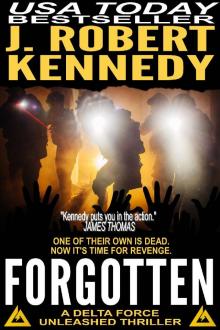 Forgotten
Forgotten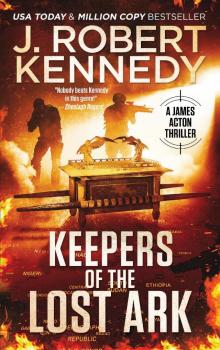 Keepers of the Lost Ark
Keepers of the Lost Ark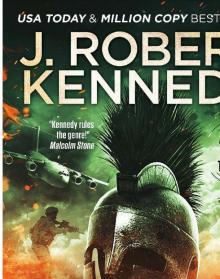 The Cylon Curse
The Cylon Curse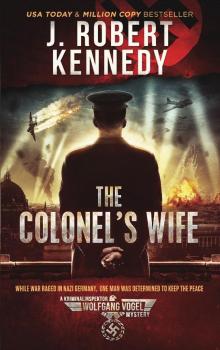 The Colonel's Wife
The Colonel's Wife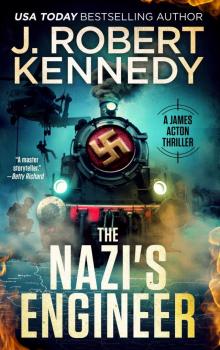 The Nazi's Engineer
The Nazi's Engineer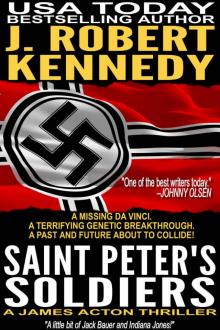 Saint Peter's Soldiers (A James Acton Thriller, Book #14)
Saint Peter's Soldiers (A James Acton Thriller, Book #14)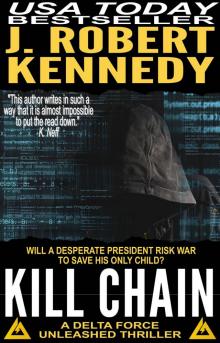 Kill Chain
Kill Chain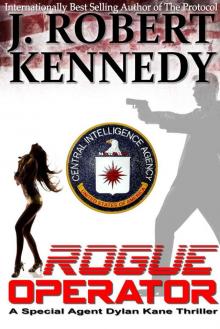 Rogue Operator
Rogue Operator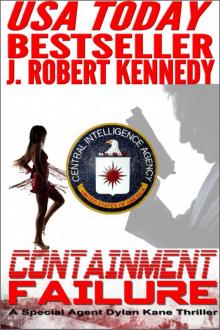 Containment Failure (A Special Agent Dylan Kane Thriller, Book #2)
Containment Failure (A Special Agent Dylan Kane Thriller, Book #2) The Lazarus Moment
The Lazarus Moment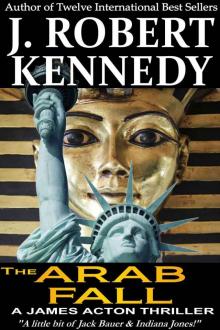 The Arab Fall (A James Acton Thriller, Book #6) (James Acton Thrillers)
The Arab Fall (A James Acton Thriller, Book #6) (James Acton Thrillers) Payback
Payback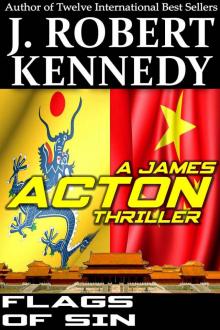 Flags of Sin - 05
Flags of Sin - 05 The Viking Deception
The Viking Deception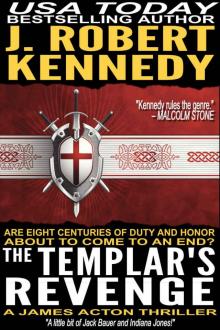 The Templar's Revenge (A James Acton Thriller, #19) (James Acton Thrillers)
The Templar's Revenge (A James Acton Thriller, #19) (James Acton Thrillers)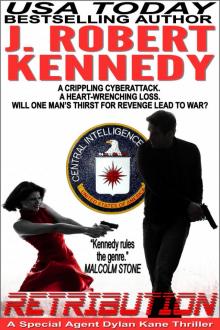 Retribution - A Special Agent Dylan Kane Thriller Book #7
Retribution - A Special Agent Dylan Kane Thriller Book #7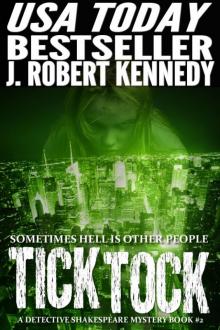 Tick Tock (A Detective Shakespeare Mystery, Book #2)
Tick Tock (A Detective Shakespeare Mystery, Book #2) Blood Relics (A James Acton Thriller, #12)
Blood Relics (A James Acton Thriller, #12)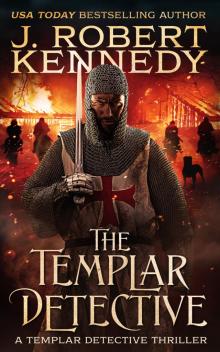 The Templar Detective
The Templar Detective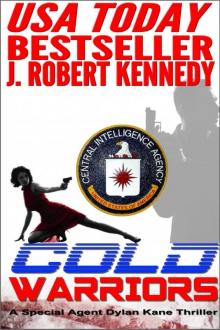 Cold Warriors (A Special Agent Dylan Kane Thriller, Book #3)
Cold Warriors (A Special Agent Dylan Kane Thriller, Book #3)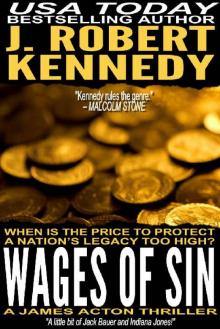 Wages of Sin (A James Acton Thriller, #17) (James Acton Thrillers)
Wages of Sin (A James Acton Thriller, #17) (James Acton Thrillers)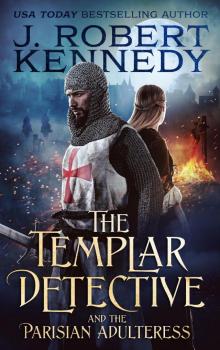 The Templar Detective and the Parisian Adulteress
The Templar Detective and the Parisian Adulteress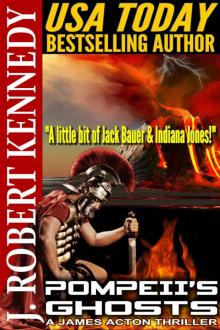 Pompeii's Ghosts (A James Acton Thriller, #9)
Pompeii's Ghosts (A James Acton Thriller, #9) Raging Sun (A James Acton Thriller, #16) (James Acton Thrillers)
Raging Sun (A James Acton Thriller, #16) (James Acton Thrillers) The Riddle (A James Acton Thriller, Book #11)
The Riddle (A James Acton Thriller, Book #11)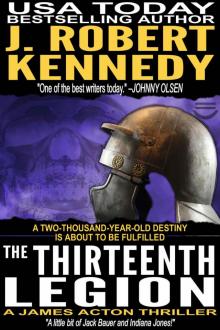 The Thirteenth Legion (A James Acton Thriller, #15) (James Acton Thrillers)
The Thirteenth Legion (A James Acton Thriller, #15) (James Acton Thrillers)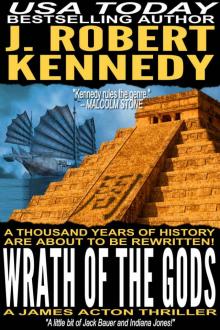 Wrath of the Gods (A James Acton Thriller, #18) (James Acton Thrillers)
Wrath of the Gods (A James Acton Thriller, #18) (James Acton Thrillers) Sins of the Titanic (A James Acton Thriller, #13)
Sins of the Titanic (A James Acton Thriller, #13) Amazon Burning (A James Acton Thriller, #10)
Amazon Burning (A James Acton Thriller, #10)